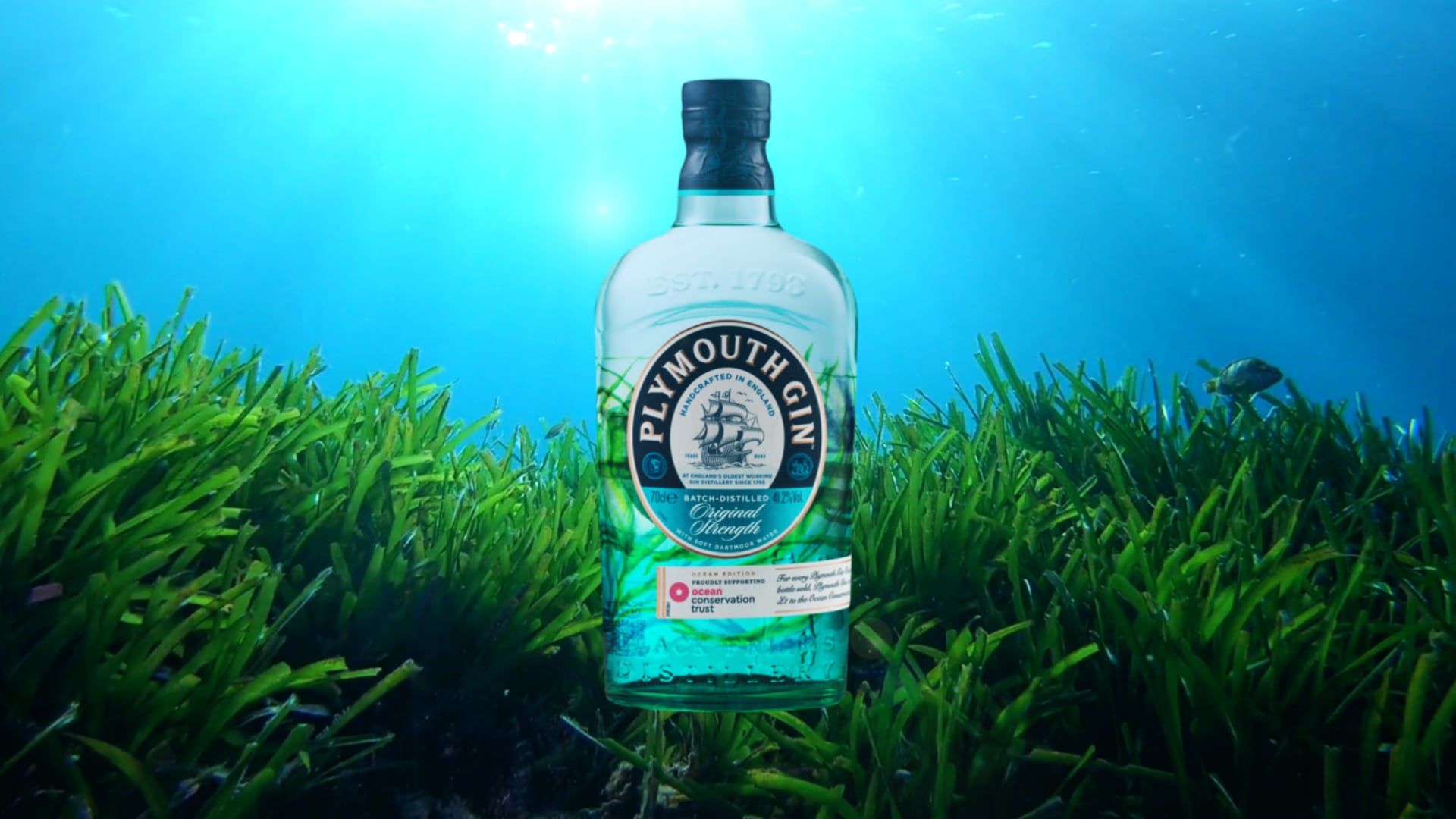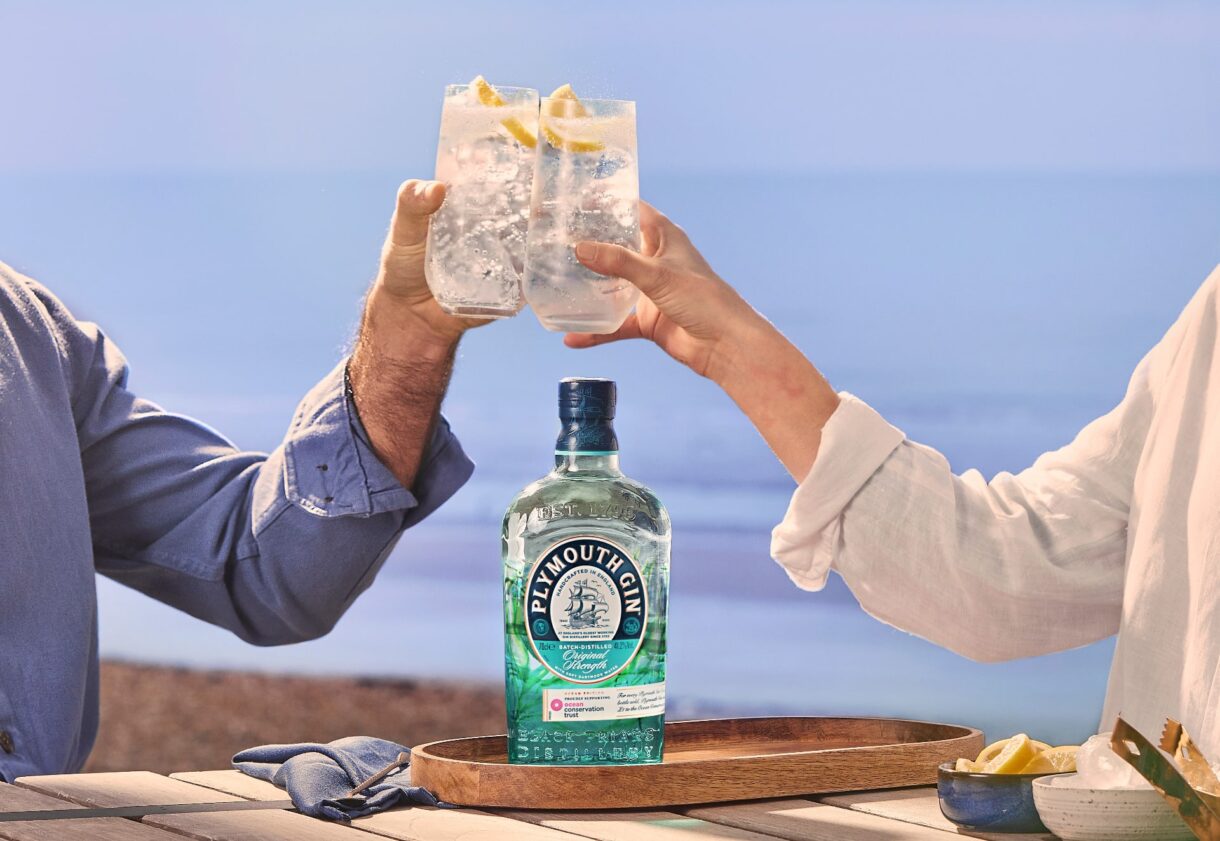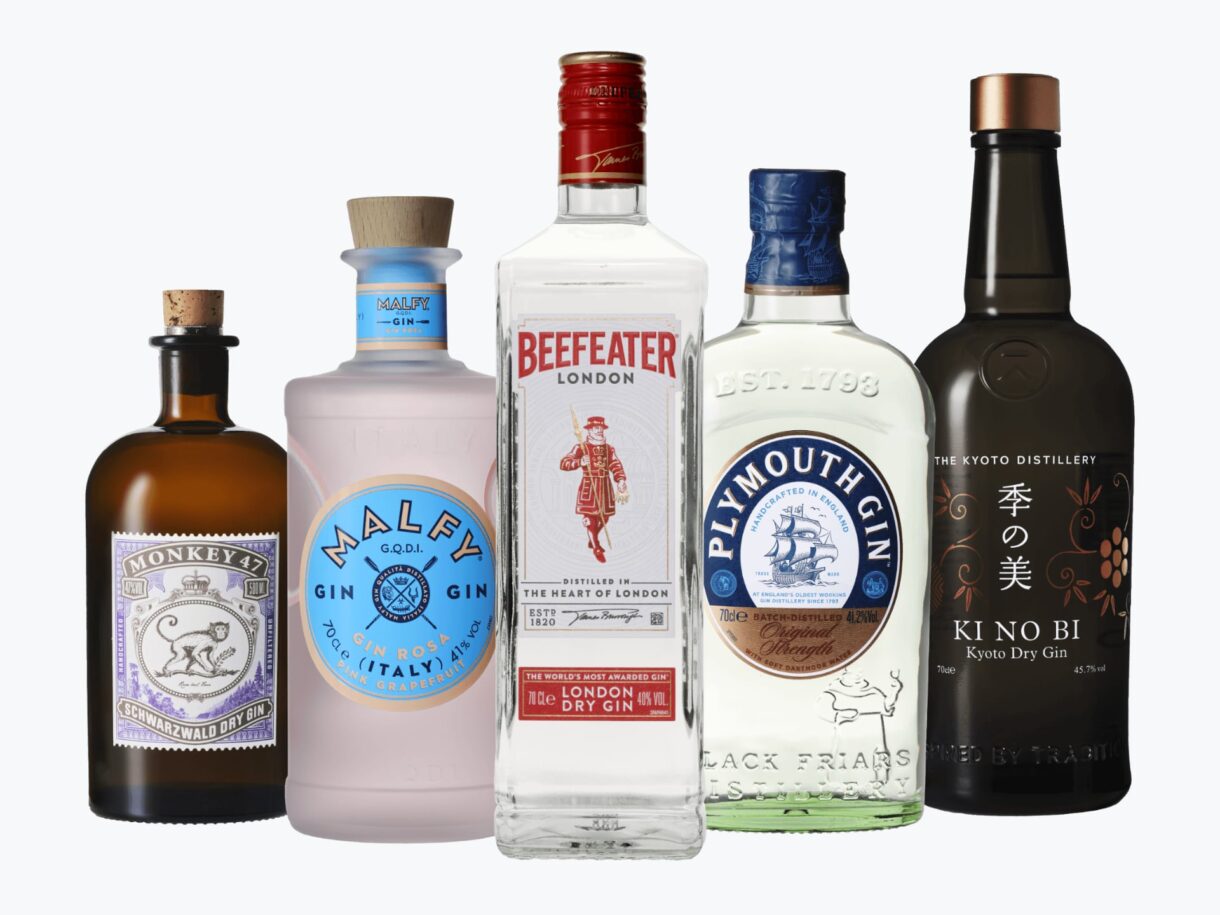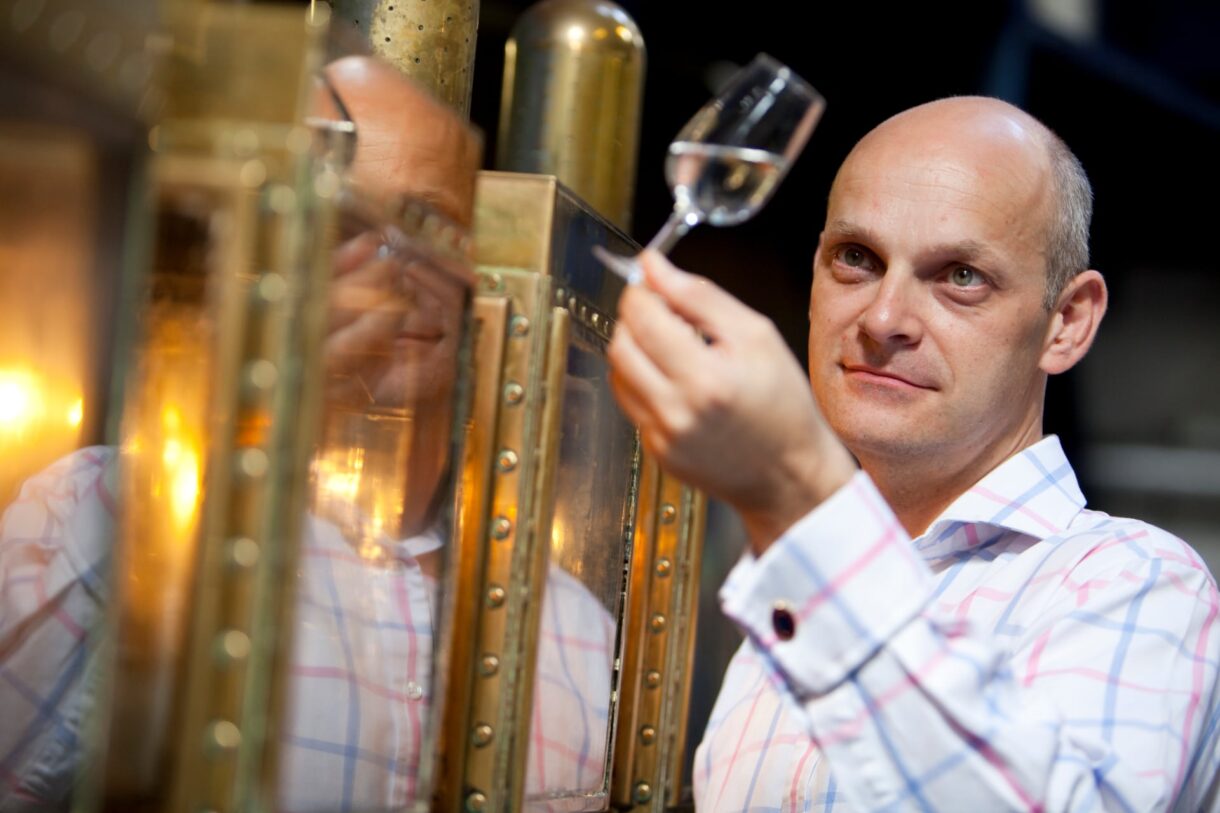
Championing ocean conservation
Plymouth Gin’s community-driven partnership with the Ocean Conservation Trust is helping safeguard one of the most precious habitats in our oceans – seagrass.

Seagrass plays a vital role in our seas by helping to maintain a healthy marine environment – providing food and shelter for a wide variety of marine animals from fish to shellfish to seahorses. Not only is seagrass an incredibly important fish nursery ground (there are 40 times more marine life on ocean floors with seagrass), British seagrasses can also store carbon stock levels equal to or higher than our native woodlands. Despite only covering 0.2 per cent of the ocean floor, seagrasses store 10 per cent of the ocean’s carbon.
Unfortunately, a large percentage of seagrass beds, or meadows as they are called, have been lost or damaged due to human activities including anchoring, recreational use of seas, pollution and industrial growth. Globally, seagrasses have been disappearing at a rate of 110 km2 per year since 1980, with close to a third of known seagrass meadows now lost.1 Meanwhile, a recent University College London study estimated that the British waters have lost more than 90 per cent of its seagrass meadows in almost a century.
Replanting of seagrass is trying to unwind some of the damage that’s been done to the ocean
Toni Ingram
The plight of seagrass has spawned a significant number of projects around the world aimed at restoring and preserving seagrass habitats. Plymouth Gin is playing its part by teaming up with the Ocean Conservation Trust (OCT) – a global charity located just a stone’s throw away from its distillery across the harbour in Plymouth. The charity’s ‘Blue Meadows’ project is aiming to protect around 700 hectares (equating to 10 per cent of all UK seagrass meadows) by 2027, restoring them to the quantity and quality of how they were more than half a century ago.
“Replanting of seagrass is trying to unwind some of the damage that’s been done,” says Toni Ingram, Marketing Director – Strategy, portfolio and innovation – Beefeater, Malfy and Plymouth. “If we can get back to where we were in the 1960s, we’d be putting a lot back. It is a great carbon neutraliser, which helps in the battle against climate change too.”
Over the past two years, Plymouth Gin has supported the OCT regeneration of an area of seagrass the size of 20 football pitches. It has marked the partnership with specially designed, limited-edition bottles and donates £1 to the cause for each bottle sold in the UK. This year’s blue-tinted bottle featured swirling leaves of seagrass baked into the glass with both the label and bottle made using recycled and 100 per cent recyclable materials. “The bottles look fabulous. People really seem to engage with them and love the cause,” says Toni. “If it wasn’t for businesses like Plymouth Gin supporting our charity our efforts would not be as powerful as they are today,” says Phillipa Revest, Head of Marketing at the OCT. “Developing partnerships not only brings much-needed income for our work, but it also promotes the power of a meaningful connection and a shared objective. The team at Plymouth Gin are incredibly passionate about their own relationship with the ocean, so the synergy between us is incredibly aligned.”
For more than 250 years, the Plymouth Gin distillery has been at the heart of the local community – and it was community spirit, galvanised by the pandemic, that led to its first collaboration with the Trust in 2021, with a campaign, Leave Nothing but Footprints, fronted by British TV adventurer Ben Fogle. With the equivalent of a full rubbish truck worth of plastic dumped into the ocean every minute3, the campaign urged beachgoers to pick up at least five pieces of litter before they left for home, resulting in 500 million fewer pieces of rubbish on the coast a year.4
If it wasn’t for businesses like Plymouth Gin supporting our charity our efforts would not be as powerful as they are today.
— Phillipa Revest, Ocean Conservation Trust
“During Covid, ‘staycation’ meant our beaches were packed with people unable to holiday overseas. However, one of the key issues was the mess that was being made by beachgoers having moments of conviviality but not clearing their litter when they left. The impact of dirty beaches on marine life and ocean conservation is significant,” says Toni. “Plymouth Gin has always had a relationship with the ocean and we were looking at how we could offer support from a community perspective.
It’s a view shared by the charity. “We have gone from a beach clean to the release of not just one, but two limited edition bottles of Plymouth Gin. Our relationship is a testament to the power of working locally and celebrating and supporting our community and businesses,” adds Phillipa.
Accelerating Loss of Seagrass Threatens Global Ecosystems 2. Historical Analysis Exposes Catastrophic Seagrass Loss for the United Kingdom 3. World Economic Forum 4. Ocean Conversation Trust


